Today at the end of a proliferous second generation of great contemporary women writers it’s difficult to understand how twenty-five years back the sensitivity in Woolf's writing could be such a relief and a release from the official ‘canon’ of English writing that mattered. Doris Lessing complained that Woolf was 'such a Lady she left so much out.' Her poetic side puts people off, as well as her Edwardian class-consciousness – all that talking about the charwoman’s rough red hands and so on. However for me her sensitivity burns through all these social attitudes. She was aware of the price you pay for living outside the ordinary run of happiness. In Mrs Dalloway the portrayal of mental breakdown for the sufferer and those around him is portrayed with great delicacy and detachment too, without the anger or nihilism that leaves such a depressing aftertaste as in the work of Sylvia Plath or Ken Kesey. Woolf might have been in many ways prisoner of her class and time but she understood like that other Edwardian, EM Forster, what it was like to suffer under the perception of the moral majority. She reacted with defensive snobbery to middle class philistines and the working class in her notebooks and diaries and even wrote an essay ‘Am I a Snob?’ but the root of her distaste for so many people was always that for a certain sort of sensitive nature any group mentality, working class or other constituted a stifling moral majority fatal to her work and thought.
What I reacted to when I first read Woolf all those years back was her commitment to the poetic feel of everyday. Her writing was about sensitivity itself, the ‘shower of atoms,’ the feel of minute by minute consciousness outside the usual narrative themes of life, erotic desire ending in coupledom, motherhood and so on. Not that this always works when she walks the tightrope between poetry and prose. ‘To the Lighthouse’ is one of the most beautiful and saddest books I’ve ever read for the pain of loss and time going by after the death of the mother Mrs Ramsay. But when I picked up ‘The Waves’ in the library recently I didn’t get that far into it. Maybe I should try again. It seems that when I read I do need what Raymond Carver calls somewhere the ‘feel’ of autobiography. Whereas ‘the Waves’ is beautiful but bodiless. Still it occurs to me that not many of today’s greats like Toni Morrison, AL Kennedy, Zadie Smith do justice to Woolf’s almost asexual, but passionate mental texture of woman’s experience without being sucked into the swirl of erotic relationships. Maybe that’s because they’re prose artists - you have to look to poetry for a similar intensity.
Tuesday, January 13
Subscribe to:
Post Comments (Atom)







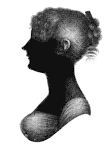

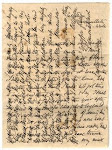
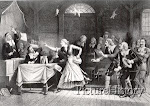
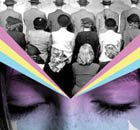












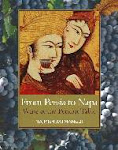


























Allez, je me lance et t'avoue je n'ai jamais réussi à lire Mrs Dalloway, phrases extrèmement longues, aucun chapitre, comme si je me sentais obligée de ne pas faire de pause...
ReplyDeleteMais il existe des périodes où l'on est plus disposé de lire les pensées intérieures d'un schizophrène...alors pourquoi pas le reprendre !
avec "Mrs Dalloway" j'au eu une expérience un peu "spéciale"
ReplyDeleteIl se trouve que par pur hasard , peu de temps avant de lire ce blog j'ai commencé à écouter ce livre en version livre-audio (et en russe, en plus). C'etait mon premier livre audio - et , je crois le dernier... Et ce n'est pas uniquement la manière de lecture (l'actrice avait du talent mais sa lecture faisait penser à une jeune adhérente du parti communiste des années 80...) , mais le fait que aucun arrêt , aucune pause de reflexion n'est possible. Je me surprenais à chaque fois de reflechir/rever pendant que 2 nouvelles "pages" passait à côte de ma conscience (je vois maintenant que ça m'arrive tout le temps quand je lis -mais je reviens en arrière) Par conrte, ça m'a fait beaucoup reflechir sur le processus de lecture :)
Maybe 'Mrs Dalloway' doesn't translate so well in French/Russian. Also Woolf's writing is very much an inner voice more to be read and doesn't lend itself to recital like other inner voices of dramatised prose eg the voices of Beckett's characters.
ReplyDeletesi, je pense que c'est assez bien traduit (il y a une très forte et bonne tradition de traduction, un peu perdu d'ailleurs maintenant)
ReplyDeletepar contre, où tu as complétement raison - et je voulais même le dire - c'est que j'ai vraiment mal choisi le livre pour une telle expérience
"is very much an inner voice more to be read" - c'est vraiment ça ...